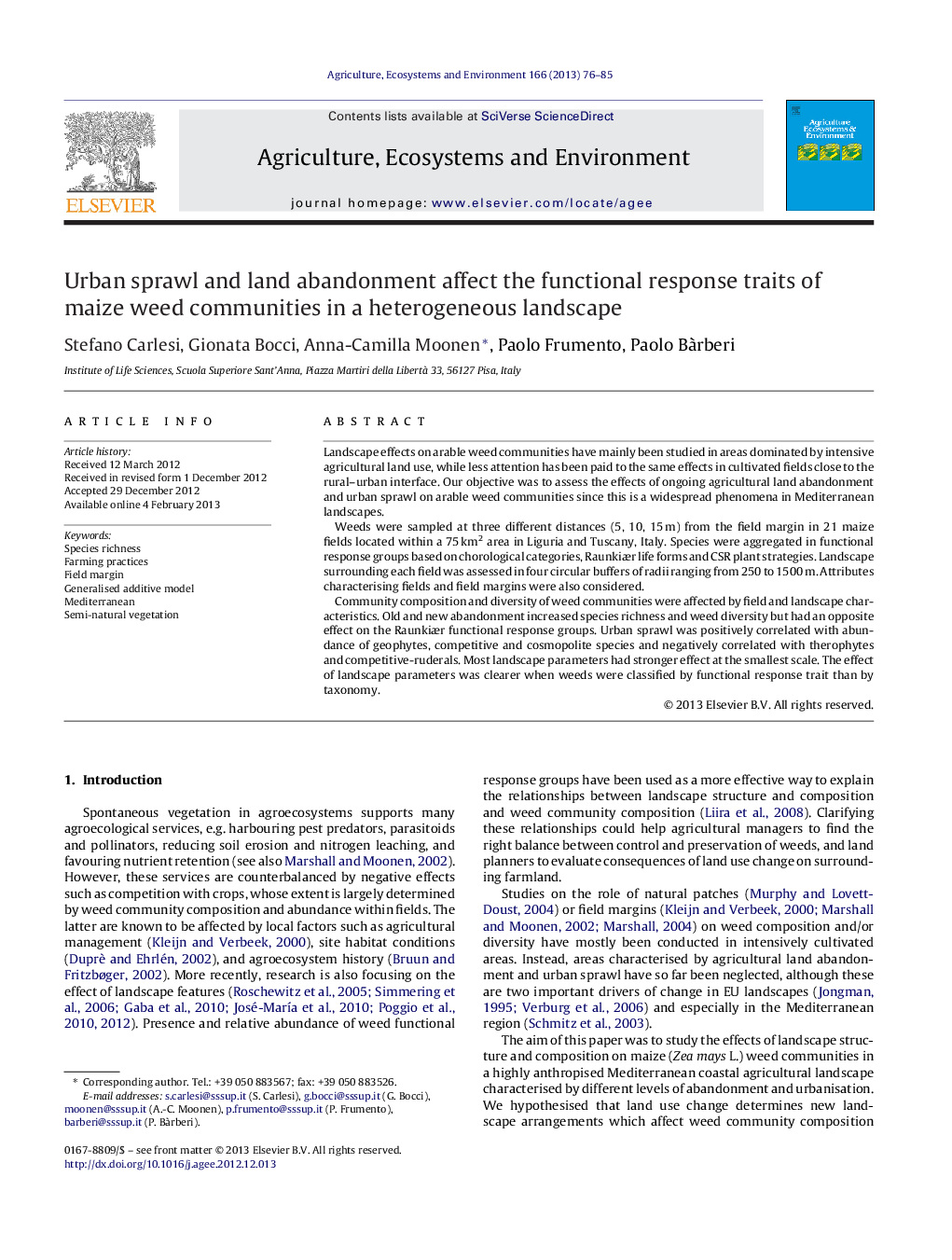| Article ID | Journal | Published Year | Pages | File Type |
|---|---|---|---|---|
| 2414346 | Agriculture, Ecosystems & Environment | 2013 | 10 Pages |
Landscape effects on arable weed communities have mainly been studied in areas dominated by intensive agricultural land use, while less attention has been paid to the same effects in cultivated fields close to the rural–urban interface. Our objective was to assess the effects of ongoing agricultural land abandonment and urban sprawl on arable weed communities since this is a widespread phenomena in Mediterranean landscapes.Weeds were sampled at three different distances (5, 10, 15 m) from the field margin in 21 maize fields located within a 75 km2 area in Liguria and Tuscany, Italy. Species were aggregated in functional response groups based on chorological categories, Raunkiær life forms and CSR plant strategies. Landscape surrounding each field was assessed in four circular buffers of radii ranging from 250 to 1500 m. Attributes characterising fields and field margins were also considered.Community composition and diversity of weed communities were affected by field and landscape characteristics. Old and new abandonment increased species richness and weed diversity but had an opposite effect on the Raunkiær functional response groups. Urban sprawl was positively correlated with abundance of geophytes, competitive and cosmopolite species and negatively correlated with therophytes and competitive-ruderals. Most landscape parameters had stronger effect at the smallest scale. The effect of landscape parameters was clearer when weeds were classified by functional response trait than by taxonomy.
► Land use changes affect weed functional response traits and species richness. ► Land abandonment increased species richness. ► New and old abandonment had opposite effects on Raunkiær life-forms. ► Urban sprawl enhanced cosmopolite species. ► Fragmentation reduced species richness and competitive-ruderal species.
